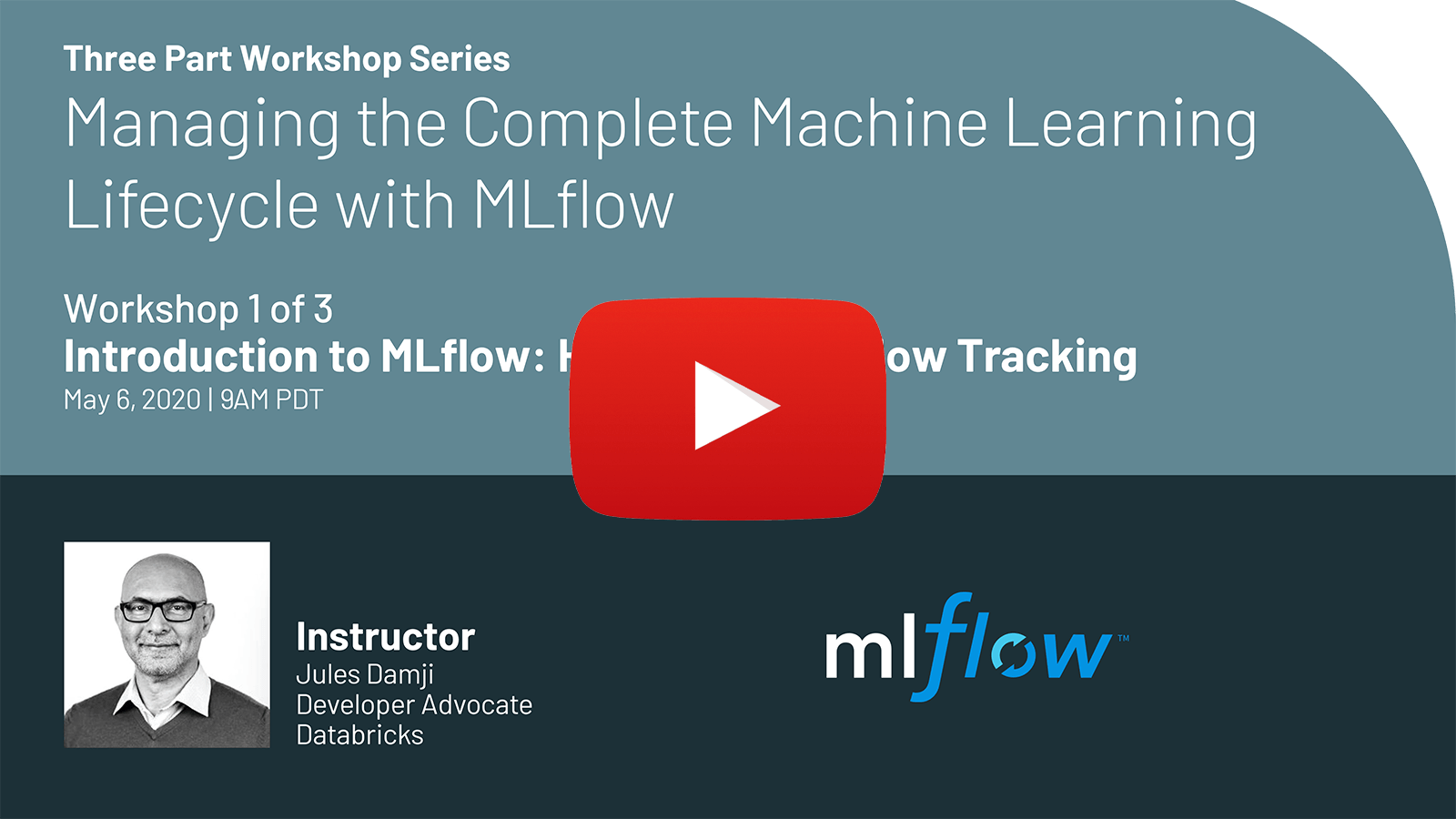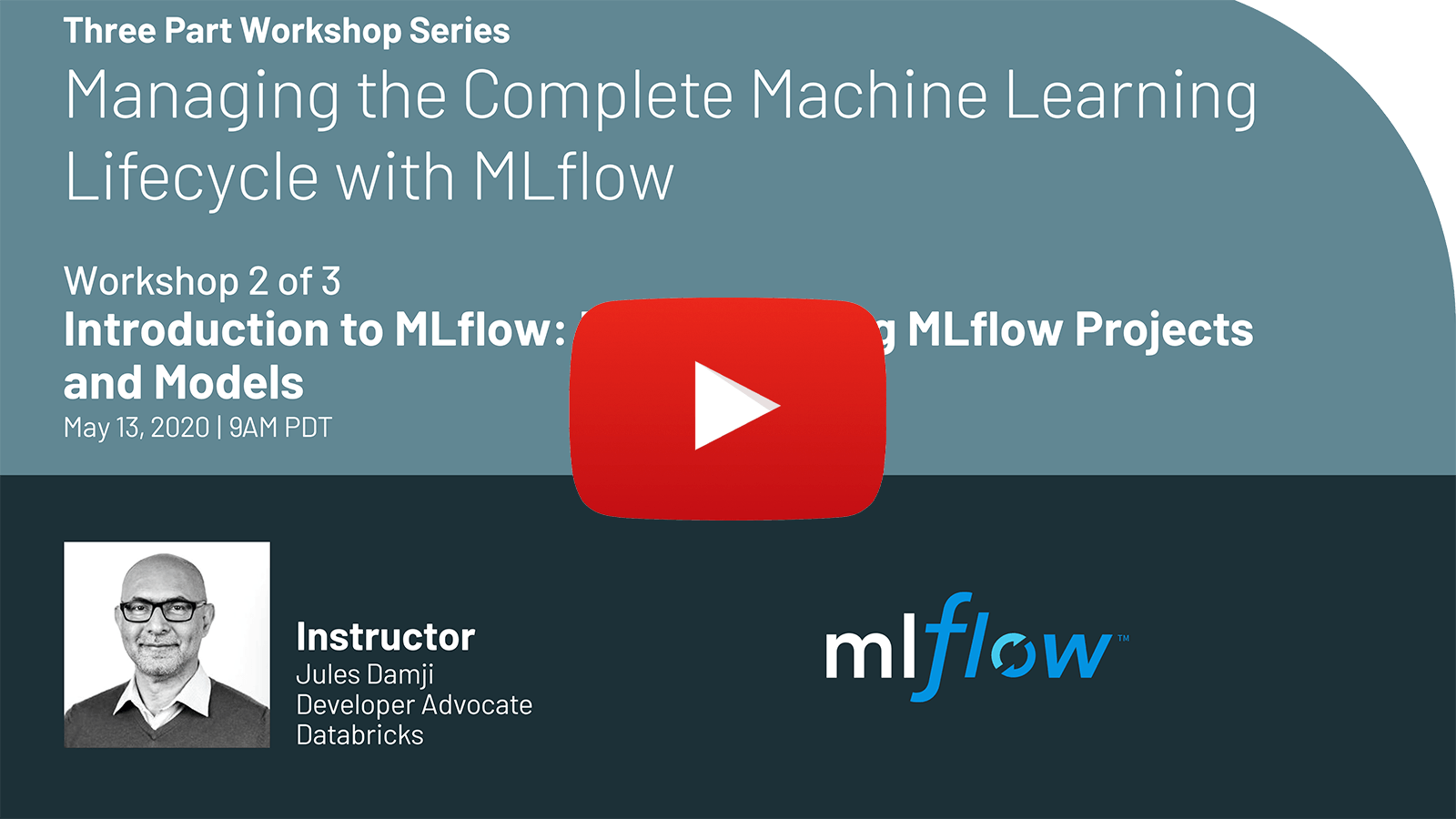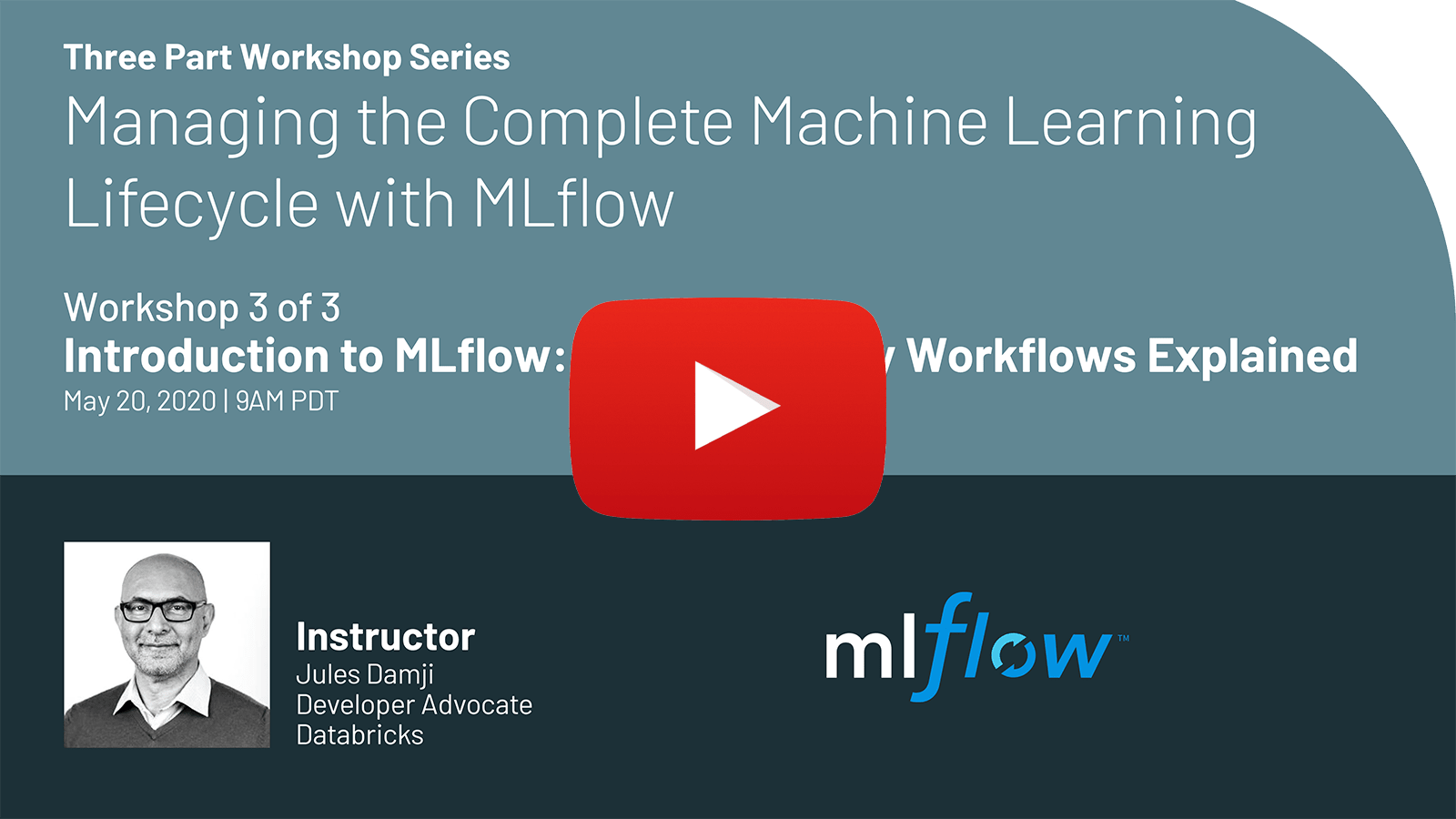Managing the Machine Learning (ML) Lifecycle Using MLflow
Technical Workshop Series
Overview
This workshop is an introduction to MLflow. Machine Learning (ML) development brings many new complexities beyond the traditional software development lifecycle. Unlike in traditional software development, ML developers want to try multiple algorithms, tools and parameters to get the best results, and they need to track this information to reproduce work. In addition, developers need to use many distinct systems to productionize models.
To solve these challenges, MLflow, an open source project, simplifies the entire ML lifecycle. MLflow introduces simple abstractions to package reproducible projects, track results, encapsulate models that can be used with many existing tools, and central repository to share models, accelerating the ML lifecycle for organizations of any size.
Many of the workshops include notebooks and links to slides for you to download.
If you’d like to follow along, please Sign Up for your free Community Edition account or download MLflow.
Introduction to MLflow: How to Use MLflow Tracking
How to use MLflow Tracking to record and query experiments: code, data, config, and results.
Understanding MLflow Projects and Models
How to use MLflow Projects packaging format to reproduce runs, and now to use MLflow Models general format to send models to diverse deployment tools.
Model Registry Workflows Explained
Understand how the Model Registry helps address challenges of the ML lifecycle.
- Concepts and motivation behind Model Registry
- Tour of the the Model Registry Documentation and APIs
- How to use Model Registry Workflows: Model Registry UI and Model Registry API
- How to manage, annotate, and transition models with Model Registry
- Use Model Registry UI on the local host
- Deploy and serve a registered model on the local host


